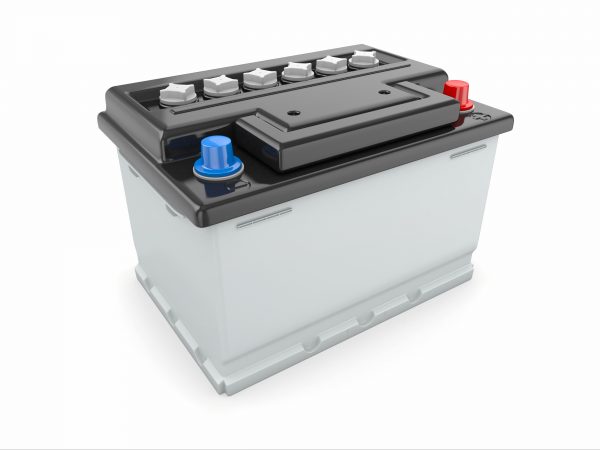Batteries—we use them for everything from cell phones to flashlights. They don’t last forever, though, and it’s hard to know what to do with them. Most single-use (not rechargeable) household batteries are safe to dispose of in the landfill, but other types of batteries are not only prohibited from going in the landfill, they can be very dangerous when transported in a garbage or recycling truck. Keep reading for information on safe disposal of all your batteries.
Single-Use Household
Alkaline (AA, AAA, 9-volt, etc.)
- Thanks to the Mercury-Containing and Rechargeable Battery Management Act of 1996, today’s alkaline batteries are made of safer materials and don’t contain the hazardous chemicals that used to be present in them. This means that it’s safe (and legal) to throw them away with your regular household trash. However, please do not dispose of a large number of batteries at one time.
- When disposing of 9-volt batteries in your trash, put them in a plastic bag to keep them separated from other trash and place tape over both the terminals. In rare cases, these batteries can cause fires if not handled carefully.
- Alkaline batteries can be recycled, but due to their low metal content, recycling programs are difficult to find and, in many cases, you have to pay to recycle them (or pay postage to send them off to a recycler).
- If you’re worried about the waste, switch to rechargeable lithium ion or nickel metal hydride batteries, which can last two to three years, much longer than traditional batteries.
Lithium (AA, AAA, 9-volt, etc.)
- These batteries look very similar to household alkaline batteries, but they will say lithium on the label and will usually include claims about being long-lasting.
- They are single-use batteries and are not the same as lithium ion rechargeable batteries.
- Lithium batteries contain heavy metals and should not be disposed of in the landfill.
- Your local municipality’s household hazardous waste program may take batteries for recycling. Several mail-in programs for recycling lithium single-use batteries can be found online. One example is Call2Recycle.

Button Cell (watch batteries, hearing aid batteries, etc.)
- There are no regulations prohibiting throwing button cell batteries in with your trash, but the Environmental Protection Agency (EPA) recommends you recycle them since they do contain a small amount of mercury. As part of our own mercury minimization program, Granger supports efforts to keep mercury out of landfills.
- Check your local municipality’s household hazardous waste program to see if they take batteries for recycling. Several mail-in programs for recycling lithium single-use and button cell batteries can be found online. One example is Call2Recycle.

Rechargeable Household Batteries
Lithium-Ion (rechargeable household batteries, cell phone, laptop, etc.)
- Rechargeable household batteries (AA, AAA, etc.) and chargeable battery packs for electronics fall into this category.
- These batteries contain heavy metals and are prohibited from being disposed of in the landfill.
- Lithium-ion batteries and products containing them, like laptops, cell phones, cameras, vaping devices, solar garden lights and electric scooters, can easily catch on fire in a trash or recycling truck, landfill or other facility.
- Please keep all lithium-ion batteries and the products containing them out of trash and recycling.
- Many retailers, such as Best Buy and Radio Shack, have recycling programs.

Nickel Metal Hydride (rechargeable household batteries, power tools, cameras, laptops, cell phone, etc.)
- Rechargeable household batteries (AA, AAA, etc.) and chargeable battery packs for electronics fall into this category.
- These batteries contain heavy metals and are prohibited from disposed of in the landfill.
- Lithium-ion batteries and products containing them can easily catch on fire in a trash or recycling truck, landfill or other facility.
- Please keep all nickel metal hydride batteries and the products containing them out of trash and recycling.
- Local retailers, such as Best Buy and Lowe’s, accept these batteries for recycling.

Lead Acid (car, boat, etc.)
- It’s against the law to put a lead acid battery in a landfill in Michigan.
- Michigan law requires all business that sell these batteries to collect them for recycling, so you can turn in your old battery whenever you buy a new one.
- Although we prefer that you take old lead acid batteries to a retailer who is likely to have a more convenient program, we do accept lead acid batteries for recycling. They can be taken to the Granger Recycling Center in Lansing (16500 Wood Road) during normal business hours.
- Lead acid batteries should never be put in your curbside trash or recycling collection.

If you have any questions about battery disposal, contact us—we’re here to help!
Related Resources
